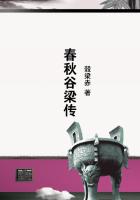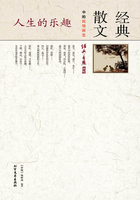NO question has more memorably exercised the ingenuity of men who have speculated upon the structure of the human mind, than that of the motives by which we are actuated in our intercourse with our fellow-creatures. The dictates of a plain and unsophisticated understanding on the subject are manifest; and they have been asserted in the broadest way by the authors of religion, the reformers of mankind, and all persons who have been penetrated with zeal and enthusiasm for the true interests of the race to which they belong.
"The end of the commandment," say the authors of the New Testament, "is love." "This is the great commandment of the law, Thou shalt love thy maker with all thy heart; and the second is like unto it, Thou shalt love thy neighbour as thyself." "Though I bestow all my goods to feed the poor, and give my body to be burned, and have not love, it profiteth me nothing." "For none of us liveth to himself; and no man dieth to himself."
The sentiments of the ancient Greeks and Romans, for so many centuries as their institutions retained their original purity, were cast in a mould of a similar nature. A Spartan was seldom alone; they were always in society with each other. The love of their country and of the public good was their predominant passion, they did not imagine that they belonged to themselves, but to the state. After the battle of Leuctra, in which the Spartans were defeated by the Thebans, the mothers of those who were slain congratulated one another, and went to the temples to thank the Gods, that their children had done their duty; while the relations of those who survived the defeat were inconsolable.
The Romans were not less distinguished by their self-denying patriotism. It was in this spirit that Brutus put his two sons to death for conspiring against their country. It was in this spirit that the Fabii perished at their fort on the Cremera, and the Decii devoted themselves for the public. The rigour of self-denial in a true Roman approached to a temper which moderns are inclined to denominate savage.
In the times of the ancient republics the impulse of the citizens was to merge their own individuality in the interests of the state. They held it their duty to live but for their country.
In this spirit they were educated; and the lessons of their early youth regulated the conduct of their riper years.
In a more recent period we have learned to model our characters by a different standard. We seldom recollect the society of which we are politically members, as a whole, but are broken into detached parties, thinking only for the most part of ourselves and our immediate connections and attachments.
This change in the sentiments and manners of modern times has among its other consequences given birth to a new species of philosophy. We have been taught to affirm, that we can have no express and pure regard for our fellow-creatures, but that all our benevolence and affection come to us through the strainers of a gross or a refined self-love. The coarser adherents of this doctrine maintain, that mankind are in all cases guided by views of the narrowest self-interest, and that those who advance the highest claims to philanthropy, patriotism, generosity and self-sacrifice, are all the time deceiving others, or deceiving themselves, and use a plausible and high-sounding language merely, that serves no other purpose than to veil from observation "that hideous sight, a naked human heart."
The more delicate and fastidious supporters of the doctrine of universal self-love, take a different ground. They affirm that "such persons as talk to us of disinterestedness and pure benevolence, have not considered with sufficient accuracy the nature of mind, feeling and will. To understand," they say, "is one thing, and to choose another. The clearest proposition that ever was stated, has, in itself, no tendency to produce voluntary action on the part of the percipient. It can be only something apprehended as agreeable or disagreeable to us, that can operate so as to determine the will. Such is the law of universal nature. We act from the impulse of our own desires and aversions; and we seek to effect or avert a thing, merely because it is viewed by us as an object of gratification or the contrary.
The virtuous man and the vicious are alike governed by the same principle; and it is therefore the proper business of a wise instructor of youth, and of a man who would bring his own sentiments and feelings into the most praise-worthy frame, to teach us to find our interest and gratification in that which shall be most beneficial to others."
When we proceed to examine the truth of these statements, it certainly is not strictly an argument to say, that the advocate of self-love on either of these hypotheses cannot consistently be a believer in Christianity, or even a theist, as theism is ordinarily understood. The commandments of the author of the Christian religion are, as we have seen, purely disinterested: and, especially if we admit the latter of the two explanations of self-love, we shall be obliged to confess, on the hypothesis of this new philosophy, that the almighty author of the universe never acts in any of his designs either of creation or providence, but from a principle of self-love. In the mean time, if this is not strictly an argument, it is however but fair to warn the adherents of the doctrine I oppose, of the consequences to which their theory leads. It is my purpose to subvert that doctrine by means of the severest demonstration; but I am not unwilling, before I begin, to conciliate, as far as may be, the good-will of my readers to the propositions I proceed to establish.
I will therefore further venture to add, that, upon the hypothesis of self-love, there can be no such thing as virtue.















